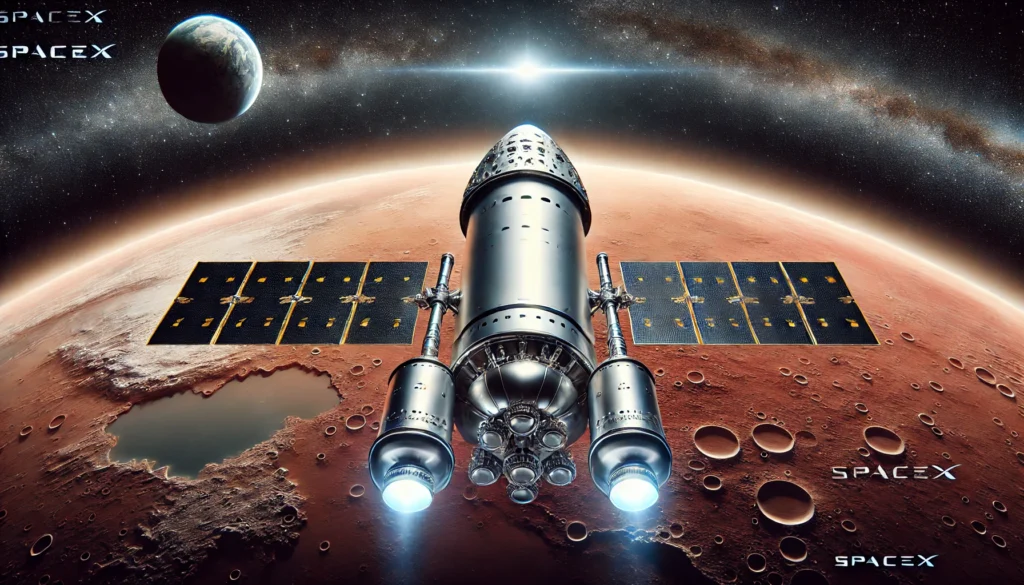Venus in Focus: Venus is often called Earth’s “sister” planet. It has fascinated astronomers, as well as space enthusiasts for many years. Venus, despite its similarities to Earth (in terms of size and distance from the Sun), has a dark and extreme atmosphere that has puzzled scientists for centuries. Recent discoveries and missions have revealed some of Venus’s secrets. This has changed our understanding of the mysterious planet.
Space exploration will make significant advances in Venus research by 2025. Venus is finally getting the attention it deserves, thanks to technological advancements and new missions by NASA, ESA and other space agencies. Venus’s scorching surface and thick, toxic air are revealing new information about the planet. This could be a key to future planetary science, as well as the habitability of the other planets.

Venus: A planet of extremes
Venus, the second-most-famous planet after the Sun, gets overshadowed by Earth and Mars. Venus is a planet of extremes. Venus’ surface temperature, which can reach a scorching 900degF (or 475degC) despite its distance from the Sun, is hotter than Mercury. Thick clouds of sulfuric acids trap heat and create a greenhouse effect, making Venus’ atmosphere the most hostile environment in the solar system.
Venus is still a top target for exploration despite its extreme conditions. Why? We can only understand planets’ atmospheres and climates by studying Venus. Scientists are learning about Earth’s climate system and its future by studying Venus’s extreme weather.
Also Read : How Do We Find Exoplanets? How We Find Alien Worlds
Explore the “Evil Twin”, The Latest Venus Missions
NASA’s future missions to Venus including the DAVINCI+ and VERITAS missions promise to transform our understanding of Venus. The two missions will launch in the next few years, and they will explore the planet’s atmosphere, geology and history.
- DAVINCI+ mission (2020): This mission is designed to explore the past water potential of Venus and study its atmosphere. The spacecraft will send down a probe to Venus’s atmosphere in order to study the composition and structure. This will help scientists better understand what made Venus so hot and inhospitable.
- VERITAS mission 2026: VERITAS maps the surface of Venus with high resolution in order to better understand its geology. VERITAS’ study of the surface will give a better understanding of the processes that form rocky planets. This could also shed light on Earth’s geological evolution.
These missions are a new age of exploration. Space agencies are determined that they will reveal the truth about Venus and unlock answers to long-standing queries about planet formation and climate.
The Atmosphere – A complex puzzle
Venus’s atmosphere, which is made up of a swirling, dense mass of sulfuric and carbon dioxide, makes it extremely difficult to study. Scientists have made some of the most important discoveries thanks to technological advancements and sophisticated models.
Researchers have found traces of phosphine, a molecule that is associated with life, in the upper atmosphere of Venus. The discovery of phosphine was initially greeted with excitement. However, the presence of this molecule alone does not indicate the existence or absence life. It does, however, raise interesting questions about the chemistry of the planet. Could Venus support life or are there other processes at work? DAVINCI+ and other ongoing missions are aimed at addressing these questions in greater detail to help us better understand why Venus is so special.
Venus and its Volcanic Activity – A Planet in Motion
The volcanic landscape of Venus is one of its most distinctive features. Many of the volcanoes on Venus are still active, and many more are thought to be. Scientists believe that Venus may be experiencing volcanic activity which could contribute to its extreme temperatures and hostile environment. Understanding Venus’s volcano activity is important because it allows scientists to compare Venus with Earth and provides valuable insight on how volcanic processes operate on other rocky worlds.
The VERITAS will provide unprecedented information about the geological history of Venus and its current volcanic activity. Scientists can better predict Earth’s future by learning about Venus’ volcanic landscape. They can also learn about the forces that shape rocky planets of the solar system.
Venus as a window into climate change
Venus’ climate may help scientists understand Earth’s climate change. Venus is used to study the runaway greenhouse effect, a process where a planet’s surface and temperature are affected by its atmosphere.
Researchers used Venus to understand climate change on Earth. We can learn more about the delicate balance needed to support life on Earth by studying Venus’s thick, toxic atmosphere. Studying Venus’s climate, atmosphere, and climate is therefore crucial to predicting the future of climate change on Earth, and finding ways to reduce its impact.
What is the Next step in Venus Exploration?
The exploration of Venus has just begun. Our understanding of Venus will grow exponentially as NASA, ESA and other space agencies develop new technologies and launch mission. We can expect a new wealth of data from missions such as DAVINCI+, VERITAS, which are poised to launch within the next few year.
These missions are the next frontier in planetary science, and they could lead to discoveries that will change our understanding of our solar system. We learn more about Venus and also the processes that form planets, as well as the possibility of life beyond Earth.
Why Venus Should Concern You as Venus in Focus
Venus’ mysteries aren’t just academic; they also have real-world implications on our understanding of climate science, planetary sciences, and the future of space exploration. Venus is a symbol of humanity’s curiosity and drive to explore the unknown as we continue to push the limits of space technology. Venus is worth watching, whether you are interested in the dynamic processes governing planetary climates or just fascinated by the idea of life beyond Earth.
Venus’s relevance is greater than ever, thanks to its upcoming missions as well as the promise of discoveries. NASA and other international space agencies are exploring its volcanic surface and hostile atmosphere. We could be on the verge of discovering secrets that will change our understanding of the solar system and beyond.
Conclusion: Venus, a planet of mystery and discovery
The exploration of Venus is a great opportunity for humanity to understand the solar system as we enter the 21st Century. The mysteries of Venus have finally been brought into focus with the advent of new missions and technological advancements. Venus’s extreme temperatures, volcanic landscapes, complex atmosphere, and potential for life are all key factors in unlocking fundamental questions regarding planetary science and future space exploration.
Venus will continue to be a major player in space exploration for those who want to keep up with the latest trends. Watch out for the latest news from NASA and other space agencies. Venus is about to reveal all its secrets and we are just getting started.
Venus in Focus, so discover us on Youtube also.



